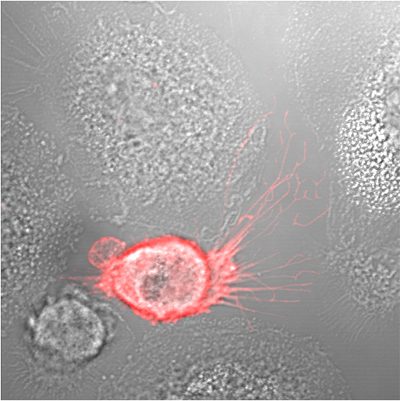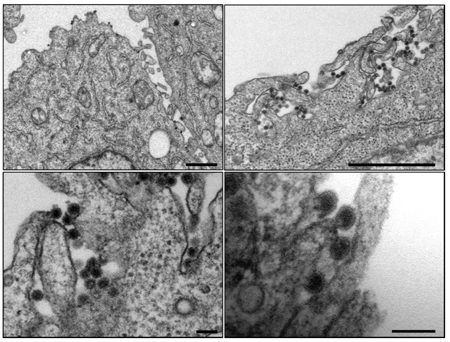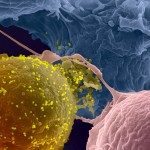Présentation
An unprecedented epidemic of Chikungunya virus (CHIKV) infection recently occurred in countries of the Indian Ocean area, causing an acute and painful syndrome with strong fever, asthenia, skin rash, polyarthritis, and lethal cases of encephalitis. The basis for Chikungunya disease and the tropism of CHIKV remain unknown. Our work is the result of a collaborative effort between numerous teams from Institut Pasteur, La Réunion hospital, and other institutions. Our aim was to establish a task force, with multiple and complementary expertise on virology, immunology and cell biology, in order to characterize this enigmatic virus. We are studying the replication characteristics of recent clinical CHIKV strains. We recently showed that Human epithelial and endothelial cells, primary fibroblasts and, to a lower extent, monocyte-derived macrophages were sensitive to infection, and allowed viral production. In contrast, CHIKV did not replicate in lymphoid and monocytoid cell lines, primary lymphocytes and monocytes, nor in monocyte-derived dendritic cells. CHIKV replication was cytopathic and associated with an induction of apoptosis in infected cells. Chloroquine, bafilomycin-A1 and shRNAs against dynamin-2 inhibited viral production, indicating that viral entry occurs through pH-dependent endocytosis. CHIKV was highly sensitive to the antiviral activity of type I and II interferons. These results provide a general insight into the interaction between CHIKV and its mammalian host. We are currently describing further viral entry pathways in various cell types.

CHIKV-infected human macrophage (virus in red)

Chikungunya Virus (CHIKV) budding from an infected human cell

